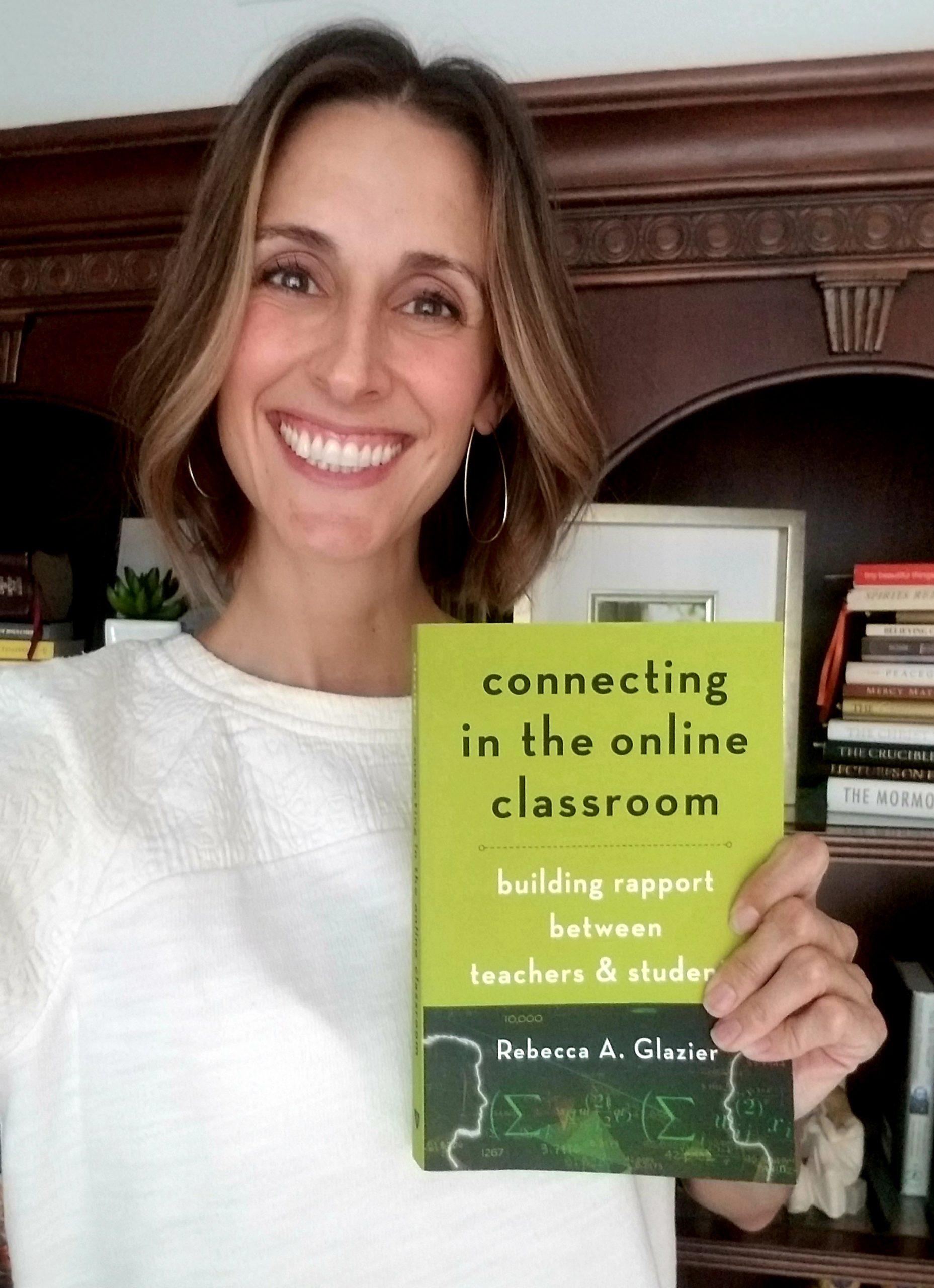Building Rapport with Online Students Will Lead to Greater Student Retention and Success, UA Little Rock Professor States in New Book
A University of Arkansas at Little Rock professor has published a book encompassing more than a decade of research on how to build student success and retention in online education.
Dr. Rebecca Glazier, associate professor in the UA Little Rock School of Public Affairs, said that building a rapport with online students can revive the promise of online education. This leads to greater success for students, more fulfilling teaching experiences for faculty, and improved enrollment for universities.
“Generally, online enrollment has been growing so much over the past 20-30 years,” Glazier said. “Yet our online students are dropping out at greater rates than face-to-face students. With the pandemic, a lot of people are paying attention to the importance of online education right now. If we really engage with our online students and make human connections, they can be just as successful as our face-to-face students.”
John Hopkins University Press will publish her new book, “Connecting in the Online Classroom: Building Rapport Between Teachers and Students,” on Dec. 7. Glazier will also give a presentation on her new book on Feb. 2, 2022, for the UA Little Rock Academy of Teaching and Learning Excellence.
“It can be very hard to build relationships with your online students,” Glazier said. “You don’t have eye contact, casual conversations, or chance interactions walking across the quad. I advocate intentionally creating ways to build connections with your online students. When you do that, students are significantly more likely to stay enrolled, have higher grades, and to graduate. And it’s more fun to teach a class where you connect to your students. The key thing is to share with students that you care about their success, and then students will care about your class more.”
Drawing from her own experience as an online educator, Glazier provides techniques that online instructors can use to build rapport with their students. These include:
• Proactively reaching out through personalized check-in emails
• Creating opportunities for human connection before courses even begin through a short welcome survey
• Communicating faculty investment in students’ success by providing individualized and meaningful assignment feedback
• Hosting non-content-based discussion threads where students and faculty can get to know one other
• Responding to students’ questions with positivity and encouragement
“There are some very easy actions that online teachers can take to build a relationship with their students, such as humanizing yourself by introducing yourself to the class with a short video,” Glazier said. “You can also tell students the shows you are binge watching and let your cat appear in the background of your lectures. You should make sure the students know you are a real person, and you care about them and their progress.”
Another one of Glazier’s strategies is to get students engaged in classroom work by giving the students ownership over classroom content.
“The students appreciate being given some ownership over classroom content and a say in what they are learning,” Glazier said. “You can ask students to vote on what case studies they’d like to review, what current events articles to read, and let the students be discussion leaders.”
While the book is geared toward online educators, Glazier said there is also a chapter for education administrators so they can create a culture that supports online education and tips for parents and students to be successful in their online classes.
“When we really invest in creating relationship-rich online classes, we see the results in terms of student success and retention rates,” Glazier said. “It’s worth it to invest in better online teaching, and I am excited to share that message. There are a lot of people who are talking about the importance of online education because of the pandemic, and my book adds to the conversation with evidence supported by data.”
